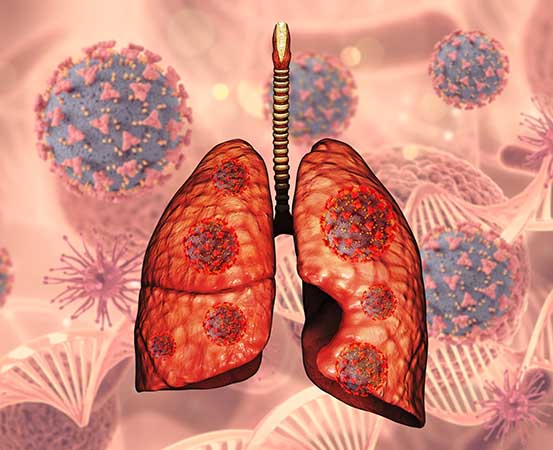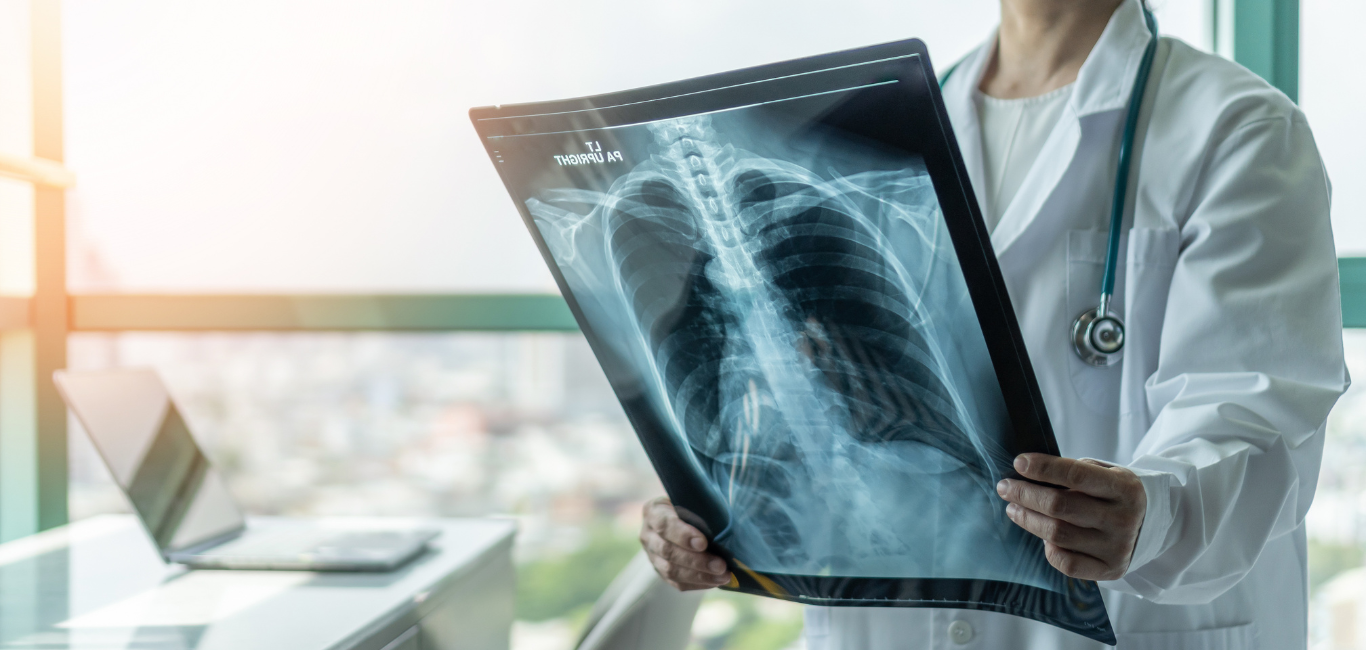
Chandrasekhar Mukherjee, a veteran table tennis player from Mumbai, has fought many matches during his life. However, his biggest battle was against covid when viral pneumonia affected his lungs.
Fifty-eight-year-old Mukherjee, who is a senior HR professional, contracted the virulent delta variant of covid last April. Since his oxygen levels were too low, he had to be admitted to the hospital, where he spent eleven days in the intensive care unit (ICU).
“Being a sportsman, I thought that my infection wouldn’t be severe. I went through a lot, but I have recovered and am doing better now,” he says. He accredits his quick recovery to him being a sportsman. “Although the infection affected my lungs severely, I didn’t take much time to get back on my feet. Thanks to my healthy living motto, about two months after I was discharged from the ICU, I got back to jogging, playing squash and tennis like I used to,” he says.
Viruses are foreign invaders in the body. Upon entering our body, they go through the upper respiratory tract (URT) which is the first line of defence, says Dr Samrat Ashok Shah, a consultant physician and intensivist at Apollo Spectra Hospital, Pune. “When the body is not strong enough to fight the virus, that is, if immunity is low, it crosses the URT to reach the lower respiratory tract (LRT) which consists of the lungs. This can lead to a severe infection of the lungs called pneumonia,” Dr Shah explains.
“The common viruses that cause viral lung infections are influenza, parainfluenza and respiratory syncytial viruses,” says Dr Shah. “It’s not the virus that decides the severity of an infection; it’s the body’s immunity to fight the virus. Immunocompromised persons such as those living with diabetes, undergoing chemotherapy and organ transplantations are more at risk of developing pneumonia,” he adds.
Viral pneumonia
Dr Vasunethra Kasargod, a consultant interventional pulmonologist, who practises at VR Chest and Women Care in Bengaluru, explains the nature of pneumonia. “It is an infection of the lungs caused either by bacteria, viruses or fungi. So, any inflammation of the lungs caused by any of them can lead to pneumonia. The overall spectrum of clinical and radiological examination determines pneumonia in an individual,” he says.
Typical symptoms of viral infections
- High-grade fever with or without chills
- Runny nose
- Body aches
- Sore throat
- Breathlessness associated with pneumonia
- Dry cough
“When the virus attacks the lungs, lymphocytes, a form of white blood cell, drive the virus out of the respiratory tract by secreting cytokines. This battle induces lung inflammation and causes viral pneumonia,” says Dr Kasargod. Cytokines are the proteins secreted by specific cells in the immune system and hence they play a crucial role in the body’s immune response.
Dr Shah mentions that the drop in oxygen levels in pneumonia is because of reduced oxygen supply, which is why many people run short of breath during severe viral infections like covid.
The dread of the delta variant
The delta strain of covid affects the lower respiratory tract which causes people to run short of breath. Dr Kasargod explains why. “A person will be sicker in case of an LRT infection which involves a drop in oxygen in extensive cases. Delta variant affects the lower respiratory tract, which is the reason why people affected required hospitalisation.”
Dr Sachin Kumar, senior consultant, pulmonology and critical care medicine, Sakra World Hospital, Bengaluru, explains, “Delta variant has specific proteins in its genetic makeup which binds specifically to the lining of our lungs, causing LRT infection and thus induces pneumonia.”
How a healthy gut helps fight viral infections
According to the US government’s National Library of Medicine, in the body’s defence against viral respiratory infections and thus in maintaining lung immunity, the gut microbiota plays a vital role.
Dr Kumar explains why. “There is growing evidence right now that the gastrointestinal tract has some bacteria which are important in generating an immune response. So, the gut microbiome or microbiota, which grows in our intestine, can stimulate our immune system in a positive way, so that antibodies and thus immune response to fight the viruses get boosted. This takes care of any further infection in the body.”
Viral infection treatment
Dr Kumar says that viral infections mostly require symptomatic treatments. It includes keeping the fever under control and hydrating well.
“In the case of pneumonia, it requires supplying the body with enough oxygen. There are also antiviral agents for a few viruses like influenza, although not for all respiratory illnesses. It should be taken as early as possible as it prevents a viral infection from getting severe. Besides that, vaccinations are quite important and should be taken routinely. Vaccines for viruses like influenza, parainfluenza, swine flu and H1N1 viruses are available. However, viral infections are self-limiting as it runs their course. In case of inflammation of the lungs, steroids are administered,” he says.
Takeaway: know the difference between viral infection and bacterial infection
Dr Kasargod explains the differences between a viral and bacterial attack in our lungs:
- Neutrophils and lymphocytes are infection fighters in the lungs. The majority of the time, lymphocytes are more in number in viral infections, whereas neutrophils make up the majority in a bacterial attack.
- The symptomatic difference between them would be phlegm (mucus that is coughed out) which is usually whitish in case of viral attacks and yellowish in case of a bacterial infection.
- The white blood cell count in case of viral infections is lower when compared to bacterial infections, which can be found upon blood investigations.
- A new type of blood test called procalcitonin test reveals their difference: procalcitonin is invariably normal in viral pneumonia and higher in bacterial infections.

















